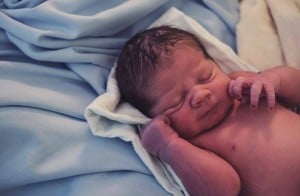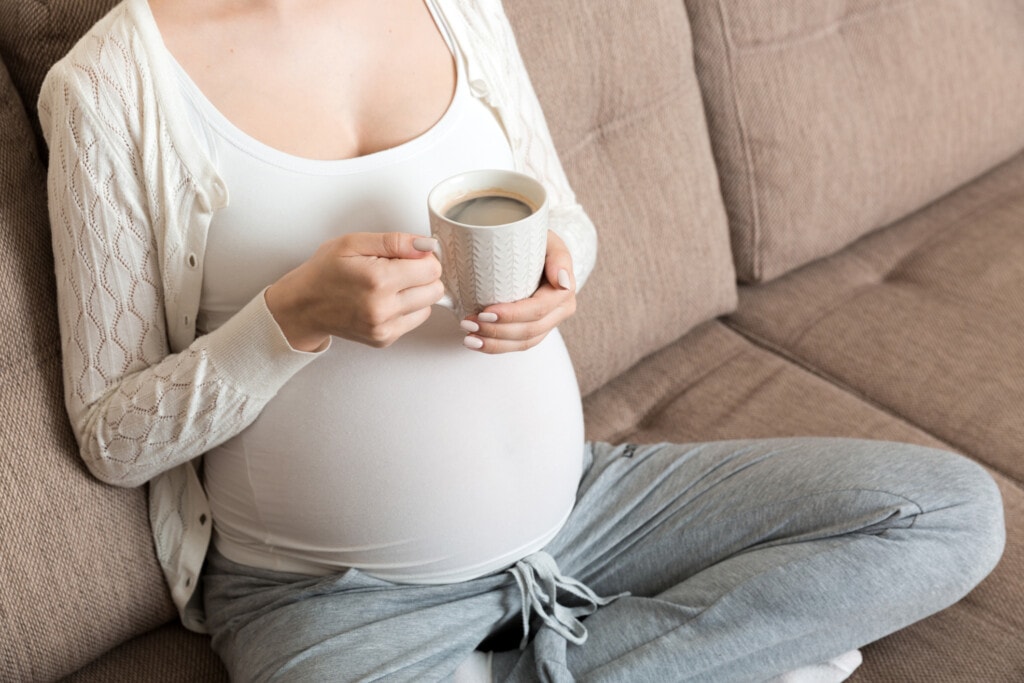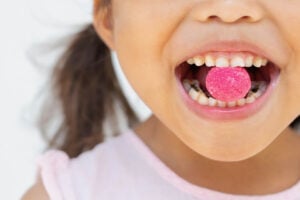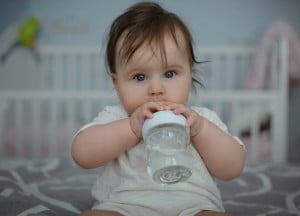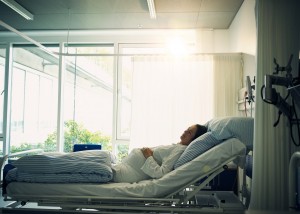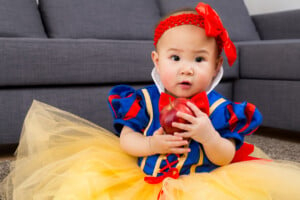There’s no denying that the first sip of coffee in the morning feels like it hits the soul. It gives you a well-needed boost to get through the tasks ahead and puts some extra pep in your step. However, if you’re planning a pregnancy or are already expecting, you may wonder if drinking coffee during pregnancy is still safe. You probably have already heard different opinions from family and friends about how much coffee is too much.
We’ve compiled some facts to help you understand how coffee during pregnancy may affect you and your baby. We hope these facts will help you cut through the noise of myths. But first, let’s discuss some fundamental concerns about coffee during pregnancy.
Is Coffee Generally Safe During Pregnancy?
It’s always best to check with your healthcare provider. But generally, it’s safe to have a small serving of your liquid pick-me-up during pregnancy.1 Remember that pregnant moms with high blood pressure, dehydration, or other health concerns should take precautions and limit their intake.2
It’s recommended that moms-to-be consume less than 200 milligrams of caffeine per day.3 That can be in the form of coffee, tea, soda, energy drinks, or food, like a chocolate bar or coffee-flavored ice cream. A good rule of thumb is not to exceed one 12-ounce cup of coffee to ensure you and your baby remain healthy throughout your pregnancy.
It’s also important to note that it is pretty challenging to determine how much caffeine is truly in one cup of coffee, making it more important to be cautious. The amount of caffeine in your java can vary depending on the brand, preparation method, types of beans used, and how it’s served (for instance, a latte or Americano).
If you’d like to begin cutting back on your caffeine intake, it’s best to dial back the number of cups you drink each day to one or two. You can also experiment with mixing decaffeinated with regular filtered coffee until you feel comfortable switching to only decaf. While decaf is an ideal alternative, it’s best not to go overboard since it contains some caffeine.4
How Does Caffeine Affect My Body During Pregnancy?
The body metabolizes caffeine much more slowly during pregnancy, staying 1.5 to 3 times longer in your system than it normally would.5 This directly affects your baby, who receives food and oxygen from the placenta through the umbilical cord, including caffeine from the coffee you consume.
Caffeine also has other effects on expectant mothers’ bodies. It increases their blood pressure and heart rate and the frequency of urination, leading to reduced levels of body fluids that can cause dehydration and lightheadedness.6
How Much Caffeine is in My Favorite Drinks and Foods?
The following drinks and foods have less than 200 milligrams of caffeine:7
- 1 tablespoon of chocolate syrup: 3 mg
- 1.45-ounce bar of dark chocolate: 30 mg
- 1.55-ounce bar of milk chocolate: 11 mg
- 4 ounces of coffee ice cream or frozen yogurt: 2 mg
- 8 ounces of brewed coffee: ranges between 80 to 200 mg
- 8 ounces of instant coffee: 75 mg
- 8 ounces of brewed caffeinated tea: ranges between 15 to 60 mg
- 8 ounces of chocolate milk: 5 to 8 mg
- 12 ounces of soft drinks: ranges between 30 to 45 mg
Coffee During Pregnancy Myths and Facts
Myth #1: You can’t drink coffee while pregnant.
The discussion of coffee has always been a tug-of-war battle, with some advising moms-to-be to stay far away from java and others suggesting that a small dosage is okay. The ACOG states pregnant mommas can consume less than 200 milligrams daily without experiencing detrimental effects such as miscarriage and preterm birth.3 So yes, you can drink your favorite brew in moderation.
Myth #2: You can replace regular coffee with decaf since it doesn’t have caffeine.
There’s a common misconception that decaffeinated coffee is free of caffeine. Not so! There is still a small amount of caffeine after the decaffeination process. About 97 percent of the original caffeine content is removed from coffee beans during decaffeination, leaving 3 percent of caffeine behind.8 For instance, a regular filtered cup of coffee can have up to 200 milligrams of caffeine, whereas a serving of decaf may have 2 to 6 milligrams.
Myth #3: I can drink more coffee if I drink more water.
In theory, we can see how some may believe this case to be true. Unfortunately, the amount of water you drink doesn’t cancel out the effects of caffeine. Since coffee produces a mild diuretic effect, this can cause expecting moms to urinate more often.9 Depending on the quantity, this may cause a decrease in hydration.
You may want to consider drinking a one-to-one ratio of coffee to water if you’re consuming 200 milligrams of coffee in a short period of time. Not complying with this 1:1 ratio, especially if you are new to coffee, may produce the sensation of thirst, weakness, or dizziness, which are signs of dehydration.10
Myth #4: Caffeine causes pregnancy or birth defects.
While further studies are needed, researchers have not reported an association between caffeine consumption during pregnancy and an increased risk of birth defects.11 However, some studies have shown that high caffeine intake during pregnancy is associated with a significant increase in the risk of low birth weight.5 This risk appears to increase as caffeine intake increases.
Myth #5: Caffeine leads to infertility in women.
A recent study found no association between caffeine consumption and the risk of primary infertility.12 Although caffeine has not been shown to affect fertility, it’s important to consult your physician if this is a concern.
Myth #6: Caffeine causes miscarriages.
According to the ACOG, “moderate caffeine consumption does not appear to be a major contributing factor in miscarriage or preterm birth.”13 High doses of coffee, however, have been linked to miscarriages. In 2008, one study found that the risk of miscarriages increases by 12-15% if women drink even the recommended serving during pregnancy.14 Women who drank more than the recommended serving increased their risk by 25%.14
If you need a small wake-me-up throughout your pregnancy, remember moderation is essential. You can safely enjoy one cup of java each day. But it’s best not to exceed that limit. Consult your physician if you have any concerns or questions or have health conditions that caffeine may affect.






